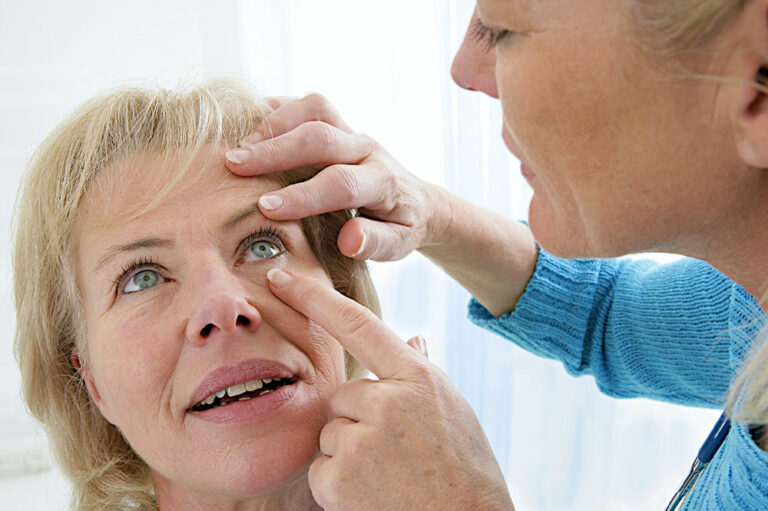
Causes, risks, and symptoms of Huntington’s disease
Huntington’s disease is a rare disorder that affects the brain cells, leading to several physical, cognitive, and emotional symptoms. It is a hereditary neurodegenerative disease that attacks the central nervous system. It’s important to note that there is currently no cure for it. However, understanding the early causes of the disease, assessing risks, and identifying signs and symptoms of Huntington’s disease in detail will provide a comprehensive understanding of this condition.
Causes
The following are the genetic causes linked to the development and progression of Huntington’s disease (HD).
Genetic mutation
HD is caused by a mutation in the HTT gene, which is on chromosome 4 in the DNA segment. This mutation causes the production of mutant huntingtin (mHTT), which is an abnormal protein.
Excess protein accumulation
The mutant huntingtin protein has a tendency to aggregate and form clusters within neurons, interfering with their function and causing damage to brain function. This mutant protein is toxic to nerve cells, particularly in certain regions of the brain, leading to their dysfunction and eventual death.
Impaired cellular transport
Nerve and cell damage disrupts the transport of vital molecules within neurons. This affects one’s ability to communicate and function properly to facilitate tasks and familiar actions.
Excitotoxicity
The mutant gene can make neurons more susceptible to excessive stimulation by neurotransmitters, leading to excitotoxicity and neuronal fatality.
Inflammation
One of the persistent symptoms of brain disorders is inflammation of healthy cells that also disrupts communication, contributing to neurodegeneration.
Neurodegeneration
The progressive degeneration of specific brain regions, including the striatum and cortex, are among the leading causes of HD. This neurodegeneration is responsible for the characteristic motor, cognitive, and psychiatric symptoms of HD.
Risk factors of Huntington’s disease
There are many risk factors that also dictate the progression of this disease and impact future outlook.
Genetic mutation
Having a family history of the condition is the most significant risk factor for developing it. If either parent carries a mutated HTT gene, the upcoming generation has a 50% chance of inheriting the mutation and developing Huntington’s. Genetic testing can determine whether the parent carries the gene or not. However, the severity and age of onset can vary among affected individuals. Nevertheless, this information can inform family planning decisions.
Age
Huntington’s disease risk increases with advancing age. It is predominantly present in adulthood, usually between the ages of 30 and 50. Although it can affect individuals at any age, the risk increases as a person ages, loses immunity, or even develops comorbidities and other health complications.
Spontaneous mutations
While rare, spontaneous mutations can occur in individuals with no family history of Huntington’s disease. These cases are not inherited from parents but are the result of a new mutation in the gene found among the affected people. However, the chance of this inheritance is quite rare.
Symptoms of Huntington’s disease
Cell damage disrupts vital communications sent from the brain to all organs and extremities of the body. As a result, a person will experience various symptoms, ranging from mild muscle pain to severe cognitive impairment.
Chorea
Involuntary, jerky, and uncontrollable movements are known as chorea. This is one of the more easily noticeable signs that affect a person early on with the disease progression. These movements often start subtly with mild fidgeting or restlessness and progress to more pronounced and disruptive motions that cannot be controlled to any extent. Chorea can affect various parts of the body, including the face, arms, and legs, sometimes developing simultaneously, affecting multiple muscle groups, depending on the intensity of the condition.
Muscle stiffness and rigidity
A person with HD can also experience muscle stiffness or rigidity that develops with the disease progression. Without flexible muscle movements, one will face great difficulty in controlling simple actions. The rigidity only further causes muscle cramps and pain to develop. The combination of chorea and muscle rigidity can contribute to a significant loss of motor function over time if left unchecked.
Problems with simple tasks
HD affects the brain’s ability to coordinate movements and maintain proper balance while performing certain tasks. As a result, one might experience frequent falls and struggle to maintain posture. As the disease progresses, individuals often experience a decline in their ability to perform everyday motor skills such as writing, typing, or buttoning a shirt. This can affect activities like dressing, grooming, and cooking, thus increasing their dependence on friends and family.
Speech and swallowing difficulties
The brain also controls automatic muscle movements and actions that govern actions like eating and swallowing. Cell damage triggered by Huntington’s disease results in one developing speech and swallowing problems. One’s speech might become slurred and difficult to comprehend, and swallowing difficulties further increase the risk of choking. Speech therapy may be needed to manage these issues in the long run, as Huntington’s is a progressive disorder.
Cognitive decline
Huntington’s disease will impact cognitive functions. Some of the early signs include difficulties with focus, retention, and problem-solving abilities. These are basic functions that are required to accomplish day-to-day tasks. As the disease progresses, one might experience more severe cognitive decline that also affects their ability to think, reason, and arrive at a decision.
Emotional changes
Huntington’s disease triggers a wide range of emotional and psychiatric symptoms. It is common for a person to experience unexpected mood swings, irritability, depression, and anxiety. These emotional changes impact relationships and greatly affect one’s quality of life, making it challenging for both the affected individual and their loved ones.
Changes in personality
Behavioral changes can manifest in various ways, triggering impulsivity, apathy, aggression, and social withdrawal. Caregivers and healthcare professionals must be prepared to address these behavioral challenges and provide appropriate support.
The outlook for individuals with Huntington’s disease (HD) will vary widely depending on several factors, including the age of onset, the severity of symptoms, and the availability of support and healthcare. There is no cure, so doctors will advise on the best course of treatment to better manage the condition.





